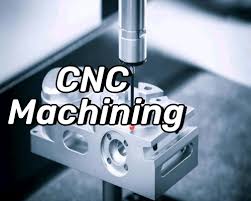
Precision CNC Machining: Powering Efficiency in Energy Component Manufacturing
Precision CNC machining stands as a key driver in the energy sector, fueling efficiency and reliability in the production of intricate components crucial for power generation, renewable energy systems, and oil and gas exploration. This article delves into the significance of precision CNC machining in energy component manufacturing, highlighting its applications, benefits, and the transformative impact it has on advancing energy technologies.
Introduction to Precision CNC Machining in Energy Component Manufacturing
Precision CNC machining refers to the computer-controlled process of shaping and finishing materials with exceptional accuracy and tight tolerances. In the energy sector, CNC machining plays a vital role in manufacturing components that are integral to various energy systems and equipment. Key aspects of precision CNC machining in energy component manufacturing include:
- Advanced Machining Techniques: CNC machining employs advanced techniques such as milling, turning, drilling, and grinding to create complex geometries and precise features required for energy components.
- Material Versatility: CNC machining can work with a wide range of materials, including metals, alloys, plastics, and composites, allowing for versatility in component design and material selection based on performance requirements.
- Efficiency and Accuracy: Computer-controlled machining ensures consistent accuracy, repeatability, and efficiency in producing energy components, leading to enhanced performance and reliability of energy systems.
- Customization and Prototyping: CNC machining enables rapid prototyping, customization, and the development of tailored solutions for specific energy applications, supporting innovation and flexibility in component design.
Applications of Precision CNC Machining in Energy Component Manufacturing
Precision CNC machining finds diverse applications across various segments of the energy industry, including:
- Power Generation: CNC machining is used to manufacture components for power generation systems, such as turbine blades, generator parts, heat exchangers, and cooling system components. These components are designed to withstand high temperatures, pressures, and mechanical stresses in power plants.
- Renewable Energy Systems: In renewable energy sectors like wind, solar, and hydroelectric power, CNC machining is essential for producing components such as wind turbine hubs, solar panel frames, hydro turbine blades, and gearboxes. These components contribute to the efficiency and reliability of renewable energy systems.
- Oil and Gas Equipment: CNC machining plays a critical role in producing components for oil and gas exploration, drilling, and production equipment. This includes valves, pumps, connectors, drilling tools, and pipeline components that operate in challenging environments and conditions.
- Energy Storage Systems: CNC machining is involved in manufacturing components for energy storage systems, including battery enclosures, heat sinks, connectors, and charging system components. These parts support energy storage technologies such as lithium-ion batteries, fuel cells, and capacitors.
Benefits of Precision CNC Machining for Energy Component Manufacturing
The use of precision CNC machining in energy component manufacturing offers several key benefits, including:
- High Precision and Accuracy: CNC machining delivers precise and accurate components with tight tolerances, ensuring optimal fit, functionality, and performance in energy applications.
- Cost-Effective Production: Efficient machining processes, reduced material waste, and optimized production cycles contribute to cost-effective manufacturing of energy components.
- Versatility and Flexibility: CNC machining can accommodate a wide range of part sizes, complexities, and material types,energy CNC precision machining providing versatility and flexibility in component design and production.
- Quality Assurance: CNC machining processes incorporate quality control measures, such as dimensional inspections, surface finish checks, and material testing, to ensure high-quality energy components that meet industry standards and regulatory requirements.
Transformative Impact of Precision CNC Machining on Energy Technologies
The integration of precision CNC machining has a transformative impact on energy technologies:
- Enhanced Performance: Precision-machined components contribute to the overall performance, efficiency, and reliability of energy systems, leading to improved operational uptime and productivity.
- Innovation and Advancements: CNC machining enables the development of innovative designs, advanced materials, and optimized geometries for energy components, driving technological advancements and competitiveness in the industry.
- Reduced Downtime: High-quality, accurately machined components reduce the risk of equipment failure, maintenance downtime, and costly repairs, improving the overall operational reliability of energy systems.
- Sustainability: CNC machining supports sustainability initiatives by optimizing material usage, reducing waste, and enhancing the longevity and recyclability of energy components.
Future Trends and Innovations in Precision CNC Machining for Energy
Looking ahead, several trends and innovations are shaping the future of precision CNC machining in the energy sector:
- Advanced Materials and Coatings: The use of advanced materials, coatings, and surface treatments will enhance the performance, durability, and environmental resistance of energy components.
- Digitalization and Automation: Integration of digital technologies, automation, and data analytics in CNC machining processes for predictive maintenance, real-time monitoring, and process optimization.
- Additive Manufacturing Integration: Combined use of CNC machining and additive manufacturing technologies for hybrid manufacturing approaches, enabling complex part designs, rapid prototyping, and customized solutions.
- Energy Efficiency Focus: Continued emphasis on energy-efficient machining processes, sustainable practices, and green manufacturing initiatives to reduce environmental impact and energy consumption in machining operations.
In conclusion, precision CNC machining is a driving force in energy component manufacturing, contributing to efficiency, reliability, innovation, and sustainability in the energy sector. With ongoing advancements in machining technologies, materials science, and digital integration, CNC machining will continue to play a pivotal role in advancing energy technologies and supporting global energy transition efforts toward a more sustainable future.
